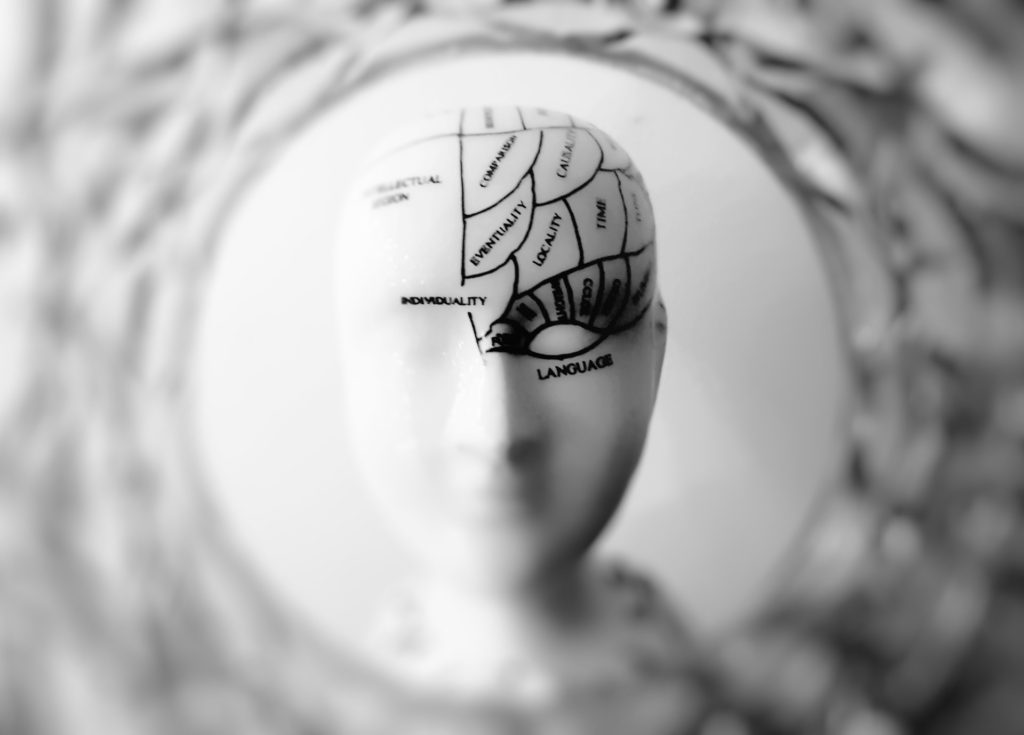Secrets of the teenage brain. A sixteen-year-old son of Frances E Jensen rode off in a car several years back. But just a few years earlier, her other son returned home from hanging out with a friend. His hair colour was strangely transformed to jet black. The University of Pennsylvania neurologist was already finding these teenagers’ behaviour increasingly unbearable.
Jensen decided to do some research into teenage thought processes and collected her research in a book she titled, The Teenage Brain. She discovered that even though a lot of persons have been written about the psychology and parenting of teenagers, there is almost no explanation over the neurons and cerebral connections that affect children within those unique and terrifying years of growing.

But then, does gathering these information about teenagers make relating with them much easier? Jensen thinks that her research helped her to grow more patient and understanding with her sons. “We expect a little bit more out of adolescents than we should, given where their brains are,” she says.
Check out:
91 Salient Conversation Topics To Dig Into The Minds Of Your Teenagers
Mistakes Parents Make With Their Teens And Tweens
Six Trusted Ways To Help Your Teenager Make and Keep Great Friends
Here are some questions Jensen tackled in an interview geared to learn from how she built her relationship with her teenagers, knowing fully well that this is one of the most fraught in family life.
Question 1: Why does my daughter always seem so angry, especially with me?
Teenagers can get frustrated with situations and themselves, as a lot of things still aren’t fitting together in their brain. The risk-taking behaviour and impulsivity they exhibit because they don’t have full access to their frontal lobes can cause mood swings and fuel conflict and anger. Adults can respond to this behaviour in an angry fashion themselves. While I’m not condoning teens’ erratic behaviour, the hope is that by understanding what is going on inside their child’s head, parents will be a bit more patient and might be able to stop themselves reacting and setting up a vicious cycle by alienating their child. Try to stay close to your teenagers, even if they seem to push you away. Always count to 10 and think twice. This is a time when mental illness can come on, and anger can be a front for depression or other anxiety disorders. Are they just being surly, or is there another explanation?
Question 2: Why won’t my teenager go to bed, and why can’t I get them up in the morning?
There is absolutely a biological basis for this. In many other mammals, like baby rodents, sleep patterns shift during the adolescent period. From puberty to the end of the teens, the circadian clock is actually programming them to go to sleep and wake up around three to four hours later than adults. This is a problem, as they are relatively sleep deprived when you wake them up at 8am. It’s something we might want to think about as a society and in education systems, as chronic sleep deprivation is certainly not helping teenagers do their biggest job, which is to go to school. We know how important sleep is for consolidation of memory and learning. It’s all about strengthening synapses, a process which is chemically impaired in a sleep-deprived brain. This could be a reason for the fights, too – everyone knows that sleep deprivation makes you emotionally impulsive.
Question 3: My teenager doesn’t seem to care about school at all. Why are they so uninterested in doing their homework, and how can I motivate them to study?
How many other competing interests do they have? For many teenagers, it’s certainly more fun to play a video game or go on Facebook than do their homework. It’s an issue we all face in the modern world, but serious demotivation can be a symptom of learning or processing problems. In that case, the teenage years are an ideal time to diagnose any problems and help work on their strengths as well as weaknesses. People have different learning styles, and there is a lot of opportunity for plasticity before your brain is fully mature.
Teenage brains have more synaptic connections than adult ones, which makes them highly impressionable, as they’re building synapses and modifying them as they learn. They are primed to learn quickly and can memorise things faster. People might think their capacity for academic achievement is set in stone from a very young age, but this can change quite dramatically over adolescence. It’s a period of huge opportunity, and this suggests that you can really change your destiny with respect to how you function at school if you get some attention during this time.

Question 4: Clothes left in the bathroom, losing things, plates festering under the bed… Why doesn’t my teenager care about being tidy?
Jensen says tidiness needs a sophisticated level of cognitive control, and the way the teenage brain is connected means that their planning is not very good. Parts of the brain connect to each other through synapses, which are insulated, just like electric wires. That insulation is a fatty substance called myelin, which is created over time.
The process takes years, and it starts at the back of the brain and slowly moves forward. The last bits of the brain to connect are the frontal and prefrontal cortices, where insight, empathy and risk taking are controlled. This means that very smart adolescents will do very stupid things in a very impulsive way. I don’t think organisation is a high priority for most teenagers. They have other things to worry about – they are messy because they don’t give themselves enough time to tidy up before they run off to do something else.
Question 5: My child loves playing video games. What effect do they have on the teenage brain?
Video games are another source of stimulation that teen brains respond exuberantly to. But as their brains respond more strongly to stress than adult brains, they have to learn to put what they see and do in the games into perspective. Adults must remember that as our frontal lobes are connected, we can reflect and do things in moderation. If teens overfocus on video games to the extent they’re not interacting with real people, that’s a problem. Video gaming and gambling use the same reward circuits as getting addicted to a substance.
Question 6: I feel increasingly cut out from my teenager’s life. Why won’t they talk to me properly?
The teens are an age of self-discovery and novelty-seeking behaviour, and it’s natural that they will start to cut ties. Teenagers need to become independent, but we live in a very complex world, and no other teenage generation in history has had this much stimulation and exposure to the many potential stresses that arise from their being online. Because of this, parents do need to be vigilant and stay connected with them. I used to love car drives with my children because we were just looking straight ahead, and the lack of eye contact helped us to start talking about sensitive things.
Question 7: How can I look after my teenager’s mental health?
You need to stay connected with your teenager. Consistent social problems can mean that there may be an anxiety disorder or another psychiatric problem, such as depression, that’s beginning to emerge. Bipolar disorder and schizophrenia often come on at the end of teenage years and in the early 20s, because you need your frontal lobes to manifest those disorders.
That’s why when kids seem to be socially isolated or gain or lose a lot of weight or stop taking care of themselves, parents need to be aware of it, as this might be the first sign of a deeper problem. Ironically, at this age if they do have an emerging mental illness, not all of their peers are as well equipped to be understanding as adults would be, because they don’t have the empathy skills.
Question 8: Why don’t teenagers wear coats, even in very cold or wet weather?
I don’t think there’s a biological basis for this. It could be an example of their lack of executive function along with their risky, impulsive behaviour – they’re not planning ahead. Their priorities are not as common sense as they will become over time. Also, teenagers will do outlandish things to please their peers, even if it means getting wet.
Question 9: Given the way the teenage brain works, should we lower the voting age to 16?
I think that society on both sides of the Atlantic and in most parts of the world is hugely confused, with dozens of mixed messages for teenagers. One example of this ambivalence is that in the US we send 18-year-olds to war yet we don’t let them drink. From what I’ve learned, the data would suggest that if you’re looking for a vote to come from somebody who you trust to make rational decisions using cause and effect, and some insight, the average 16-year-old will not yet be at that point. Also, as teens are so impressionable, the concern is that their opinion might be overly swayed by others and override their decision-making.
Question 10: Should I worry about my teenager drinking or dabbling with drugs?
The same quantity of drugs or alcohol has a much stronger effect than it does in adults. Binge drinking can cause brain damage in teenagers where it will only cause intoxication in adults. We know hard drugs can also do more damage to young brains for the same dose.
Teens are primed to learn quickly – but addiction is actually a form of learning, and they get addicted faster than they would if they were exposed to the same substances later. Chronic pot smoking has a long-term effect, as it’s actually changing your brain chemistry, just like enriching environments and academic learning do. Studies show that if you smoke pot on a daily basis for prolonged periods of time in your teen years, your verbal IQ drops.

Check Out:
23 Random Experiences I Have Gathered As A Young Husband And Father
20 Things You’d Be Glad You Knew Before becoming A Dad
Question 11: Why can’t my teenage children leave their smartphones alone, even at the dinner table – surely Instagram can’t be that interesting?
The teenage brain is hungry for stimulation. But there is an unprecedented amount of it in today’s world, maybe more than ever. Because teenagers lack access to their frontal lobes, using their judgement to say: “I’ve had enough” or “I need to stop and do something else” is still a weakness for them. Studies have shown that while teenagers are better at learning to multitask than adults, distraction from smartphones and other devices can still impair learning, so they should switch them off completely when they’re trying to study.
Unarguably, parenting a teenager can be quite hard. We parents were also once in that stage of life where we were just mad at the world, having intense emotions, taking uncalculated risks, and having strong perceptions of everything around us. Parents who have teenage children have experienced this multiple times, where the kid is regularly bashing you to leave them alone.
Often we think about this teenage phase as an obligatory phase of life we need to find our way through. We see teenagers as know-it-alls, lazy, and who do nothing else aside from constantly getting on their parent’s nerves. You know what, adolescents aren’t necessarily picking this kind of life, they only have a kind of brain that is wired differently from the brains of adults.
Science has helped a lot in unraveling the mystery behind the way these teenagers behave. Scientists are discovering the development process of the brain and also the teenage brain itself. And while this knowledge will not necessarily make your teenager’s reactions more appropriate as you always wanted, it will help you know why they are behaving the way they do and help you deal with them with less stress.
How Exactly Does The Teenage Brain Develop?

We will delve into the science of things to get a good understanding of this. The human brain often experiences significant growth through childhood. In fact, at age six, the brain is well developed. But then, at some points, the development of the brain starts becoming more noticeable, and that is…your guess is right. Teenage years.
The brain actually transcends the teenage years in development. It continues to mature throughout adolescence and some parts like the prefrontal cortex begin to attain maturity in early to mid-twenties.
PREFRONTAL CORTEX: THE BRAIN’S CONDUCTOR
What goes on in the brain during the second phase of the brain’s rapid growth? You must first understand that most of the major changes in the brain are linked to the prefrontal cortex. The prefrontal cortex is a part of the brain that is situated just behind the forehead. It is that part of the brain that handles emotion regulation, planning, and decision making.
It is usually compared to a “conductor” since it is found to direct the activities of the remaining parts of the brain. When your children reach adolescence, the ‘conductor’ prepares itself to take complete functionalities, and that is when it begins to increase in its activity. Humans develop more than enough neural connections (synapses) that need to be pruned and managed to be effective in use. Scientists previously held the belief that this process only occurs during infancy. But then, it turned out to occur before we hit puberty. And the brain doesn’t lose some of these extra connections and reorganize the new brain matter until early to mid-twenties.

How Then Does This Affect Teenage Behaviour And Life Choices?
The Teenage Brain Is A Mighty Intellectual Thing Even while the teenage brain is still undergoing maturation, the brain at that phase is mighty in intellectual power. In fact, studies have shown that it can equate the adult brain in this regard. The teenage years is the best phase of life to gather information, process it and also retain it. Did you remember how fast and easier it was for you to recollect the slightest details as a teen?
However, how adults carry and process this information differs widely from the teenagers. Adults engage all the aspects of their brains in carrying out the same tasks as teenagers, but teenagers – still having the frontal parts of their brains developing gradually – tend to rely largely on the back of the brain (their gut). And when they engage the frontal part of the brain, the teenagers consume more power than adults to get the same task done. This difference is because the adults have been able to prune those synapses in the frontal lobes that should aid speedy communication between different parts of the brain, as there are just lesser information roads available.
The Teenage Brain Is Still Under Construction
You may have noticed how your teenagers act impulsively and make some risky decisions even though they are able to tell why the decision shouldn’t be made. When making very quick decisions, the teenager relies on the ‘older’ aspect of the brain, since the frontal lobes are the last part of the brain development puzzle. Which means when you told your teenager to think before acting, you were indeed right! But the sad truth? There is not much they can do to correct such actions. Those speedy decisions are often controlled by their emotions and by their frontal lobes.

When you find your teen moody and controlled by emotions more than reason, you will almost think that they are very good in recognizing emotional expression. But no. The opposite is in fact true! Since they rely on the cruder aspect of their brain more than the frontal lobes, they have a tough time differentiating subtle shades of expression. For example, they may not be able to differentiate a frightened face from a shocked one. But they get better as they grow.
How Are You Supposed To Live With The Teenage Brain?

The aforementioned information about the teenage brain is very useful for parents. Beyond the terminology – cortex, synapses, lobes, executive functions – which makes the teenage matter seem a bit complex and for those who can comprehend the terms and implications well, having a fair idea of why teenagers do what they do will lubricate the relationship between parents and their teenage children.
Parents are able to understand their children. For instance, a parent should be able to make a child think more on a decision before taking steps, rather than taking split-seconds actions without putting their frontal lobes to work. You will also have a better understanding of their pattern of processing emotions and the challenges they face with it.
Is This Any Useful To Your Teenager?

Yes. Since your teenager is really unable to explain his/her feelings, reactions, and moods to themselves , educating them with the neurobiological reason behind their actions might help them to accept the reality of themselves. You should help them to know that their brain is often striving to follow the fastest route. So, if they try to think things better without making hasty decisions – engaging their frontal lobes as much as they can – like either discussing the repercussions of their choices with someone else, this will help them avoid hasty decisions, and think well before acting.
The teenage brain is extremely powerful. So, this can encourage those ones who are already a bit overwhelmed by all the speedy development they are experiencing. Their brains can pick a lot of things really faster and they can put a lot of things to memory. In essence, they should harness this great opportunity to explore and learn profitable interests and also improve in the aspects they were not really good at.
If you let your teenager know that they already possess a force and power they will never have access to again after growing much older, they are likely to roll their eyes. But make an effort to instill the belief and make reasonable repetitions to them. They are likely to finally listen, consent to you and explore their brain to its full potential.
Please, note that the kind of regular relationships your teenager has with other people can also affect their brain activity. As an example, a teenager that has a history of being bullied in school will exhibit different levels of activation of the brain to certain social information.
Adolescents appear more sensitive to the experience of being neglected. Also, when they are historically being loved by their classmates and other people, they will become more resilient against developing mental problems.
Everywhere in the world, adolescents are often being exposed to diverse cultures, which in turn affects different areas of their lives. Consider how many years of their lives they are open to education, to when they get married, and also how much time they commit with their families.



